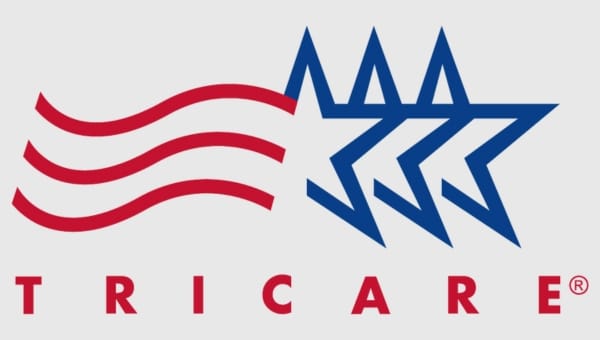The collaborative care model is an integrative approach to behavioral health treatment. It is client-centered and evidence-based. The American Psychiatric Association and other mental health organizations say this approach to addiction and mental health care can lead to:
- Better client outcomes
- Improved client functioning
- Better provider and patient satisfaction
- Less stigma surrounding mental health conditions
- Reduced health care costs
The positive impact of integrated medical/behavioral care has become apparent in the last decade or so. Through collaborative care’s roots go back to the 1970s, it took time before the approach was widely known and accepted in health care.
Medical professionals have called for the integration of behavioral and physical health care. They say co-occurring substance abuse and mental illness don’t fit into the traditional treatment model. Dual diagnosis treatment should include both primary care physicians and behavioral health providers.
What Is Collaborative Care?
Traditional substance abuse treatment includes your primary care provider, psychiatrist, and mental health team — which operate separately. For instance, you may see all your health care providers, but there is no or little communication between them. Your medical provider treats your physical ailments. Your psychiatrist and therapist treat substance abuse and mental health disorders. None of the providers communicate with one another or are fully aware of the treatment you’re receiving outside of their care.
As science continues to highlight the connection between physical and mental well-being, many health care providers see the need for holistic care. A key component of this approach for integrating physical and mental health treatment is connecting all of the different professionals and aspects of client care planning. This is how the collaborative care model came into being.
In a collaborative approach, a care manager ensures that all treatment providers are in communication and receive diagnosis and treatment updates. This approach provides patients with both integrated care and accountable care.
Ideally, collaborative care models are set up so that patients can receive all treatment in a primary care setting. Some people feel more comfortable receiving both physical and mental healthcare at a familiar location. This may increase patient engagement and improve clinical outcomes. In collaborative care, instead of seeking out addiction treatment on your own, you go to a familiar location: your doctor’s office. Your primary care physician assesses your physical health and refers you to appropriate treatment. Your collaborative care team are all be on the same page. They coordinate your treatment, measure your outcomes, and adjust your care as needed.
What Providers Are on a Collaborative Care Team?
The members of a collaborative care team will depend on the diagnosis or medical condition. If you have a substance use disorder, your team may include:
- Primary care provider
- Psychiatrist or psychiatric consultant
- Mental health specialist
- Nurses
- Health educator
- Social worker
- Behavioral health care manager
- Nutritionist or dietician
- Recovery coach
Your care manager coordinates behavioral and physical treatment with your primary care provider. Sometimes this individual is a case manager or social worker. Treatment providers monitor your outcomes and care. They measure your patient progress with standardized outcome ratings and electronic tracking tools. Your care manager provides case reviews to all involved providers.
Collaborative Care at Vogue
At Vogue Recovery Center, we collaborate with all of your providers to personalize your treatment plan to your specific needs. Our collaborative care model is an integrated care system for successful patient outcomes.
An example of our collaborative care model is the “screening, brief interventions, and referral to treatment” approach:
- Primary care providers screen clients with low-risk patterns of alcohol use.
- Clients with higher-risk alcohol use or illicit drug use receive brief interventions.
- Treatment professionals refer clients that meet the criteria for addiction to specialized treatment.
Interventions and treatment vary by site. However, they always include evidence-based approaches like motivational interviewing and cognitive behavioral therapy. We collaborate with your referring clinician and other health care providers throughout your time with us. Your treatment team may include:
- Medical professionals
- Nurses
- Behavioral health specialists
- Case manager
- Nutritionist
- Any outside services providers, such as a physical therapist or chiropractor
We prioritize collaboration throughout your treatment process. This means working closely with your referring clinician and other healthcare providers to ensure continuity of care. Your treatment team at Vogue will collaborate to develop an individualized treatment plan that addresses your unique needs and goals.
Looking for Addiction Treatment Services Near You?
Our admissions team is available around the clock to help you or a loved one get the help you need.
Our Clinical Approach To Treatment
All addiction and mental health services take place on an inpatient and outpatient basis at our behavioral healthcare facilities.

Assessments
Our initial consultations include comprehensive biopsychosocial-spiritual assessments to evaluate your symptoms and create a solid foundation for your personalized treatment plan. Our dedicated team of clinicians will guide you through the recovery process with compassionate, evidence-based care. We offer individual and group counseling, mental health education, medication management, and access to community resources—all designed to help alleviate your symptoms.

Medication-Assisted Treatment
During treatment for substance abuse, we provide medication-assisted treatment (MAT) combines medication with behavioral therapy and support services to address substance abuse. MAT has been proven to be effective in helping people recover from addiction by reducing cravings and withdrawal symptoms, improving overall health, and increasing chances of long-term recovery.

Psychiatric Care
Our comprehensive approach to psychiatric care focuses on creating personalized treatment plans tailored to every aspect of your life. With the expertise of our dedicated providers, we integrate evidence-based practices, including psychotherapy and medication management, to help stabilize mental health conditions. Our goal is to deliver lasting relief and effective long-term symptom management, empowering you to achieve a healthier, more balanced life.

Medication Management
Our dedicated providers specialize in stabilizing mental health conditions to offer lasting relief and effective, long-term symptom management. Tailored to your diagnosis, symptom severity, and personal preferences, our psychiatrists collaborate with you to create a personalized medication management plan. We provide ongoing support through regular check-ins to monitor progress and make adjustments as needed. By prioritizing continuous care, we aim to help you achieve your goals and enhance your overall quality of life.

Therapy Sessions
Our holistic approach to addiction and mental health treatment combines individual and group therapy sessions within the comfort and privacy of our dedicated facility. We utilize evidence-based practices, including behavioral therapy, trauma-focused therapy, and expressive arts therapy, tailored to meet your unique needs. Whether you're building coping skills or pursuing personal growth, our experienced mental health professionals are here to guide you toward lasting wellness.

Case Management
Our case management services help clients navigate through the often complex healthcare system. Our case managers are well-versed in insurance policies and procedures and can assist in verifying coverage and maximizing benefits. They also coordinate appointments with medical professionals and help clients understand medical jargon and treatment options.
We Can Help
If you or a loved one is struggling, reach out. We’ve helped thousands of clients take back their lives from addiction. We can help you too.
Would you like more information?
If you or someone you know has a substance use disorder, we hope you’ll begin your journey with us at Vogue Recovery Center.
Does Insurance Cover Rehab at Vogue Recovery Center?
One of the most-asked questions when it comes to treating drug addiction is whether or not insurance will cover the cost of treatment. If you’re wondering how to pay for rehab, the good news is that insurance can cover part or all of the cost of treatment. All insurance providers and policies are different, but a free insurance verification with the team at Vogue Recovery Center can offer more information about what treatment options for substance abuse and mental health issues you have available based on your policy.
If you or a loved one is struggling with an alcohol or drug addiction, don’t hesitate to contact the admissions team at Vogue Recovery Center. We can help you get started with your recovery journey!
















